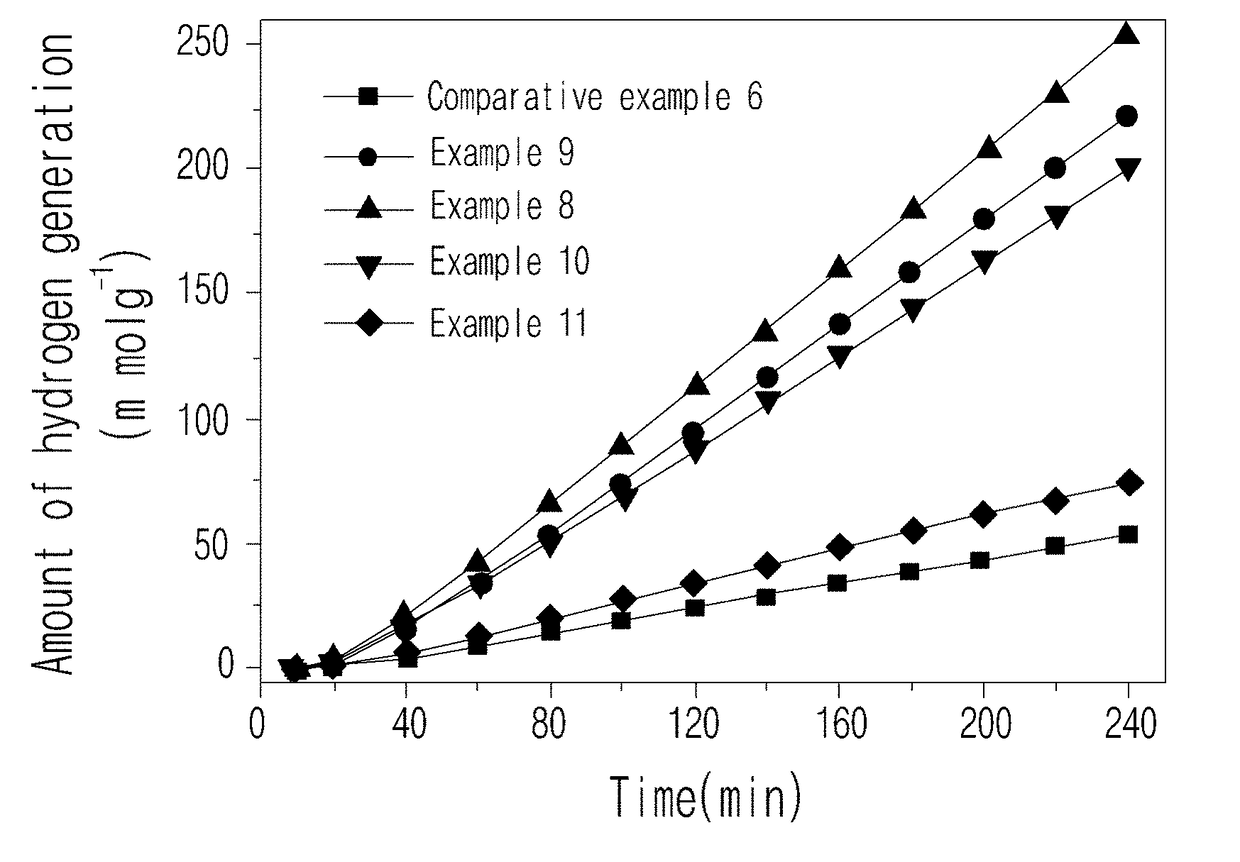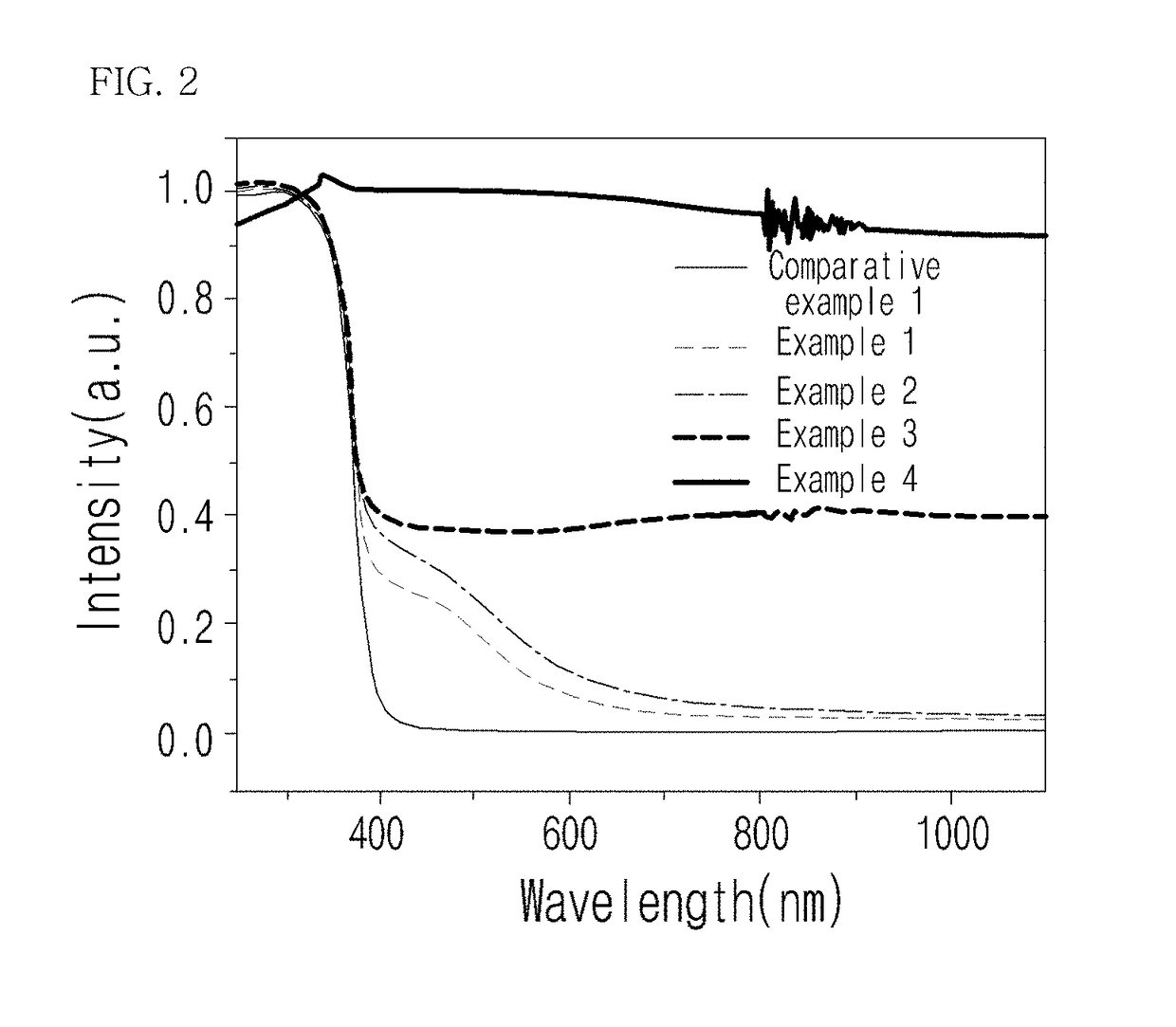Method for reducing metal oxide and method for producing photocatalyst using same
a metal oxide and photocatalytic technology, applied in the direction of titanium suboxides, physical/chemical process catalysts, tin oxides, etc., can solve the problems of low water splitting efficiency under visible light, insufficient performance, etc., to reduce titania, improve photocatalytic efficiency, and use sunlight more easily and less expensive
- Summary
- Abstract
- Description
- Claims
- Application Information
AI Technical Summary
Benefits of technology
Problems solved by technology
Method used
Image
Examples
example 1
[0193]A reduced titania (TiO2-x) photocatalyst was prepared by the following steps.
[0194]Step 1: 4 g of anatase titania (TiO2) nanoparticles (Sigma-Aldrich) and 0.4 g of magnesium hydride (MgH2, Alfa Aesar) were mixed to make a mixture wherein the molar ratio of MgH2 to TiO2 is 0.3.
[0195]Step 2: The mixture was loaded in a tube furnace, followed by heat-treatment at 500° C. for 8 hours under argon (Ar) atmosphere.
[0196]Step 3: The heat-treated mixture was loaded in diluted hydrochloric acid (HCl) solution, followed by stirring for about one day to eliminate residual magnesium (Mg).
[0197]Step 4: The magnesium-free mixture was washed with purified water and ethanol, followed by drying in an 80° C. oven to prepare a reduced titania (TiO2-x) photocatalyst.
example 2
[0198]A reduced titania (TiO2-x) photocatalyst was prepared by the same manner as described in example 1 except that the amount of magnesium hydride (MgH2, Alfa Aesar) was adjusted to 0.66 g in order for the molar ratio of MgH2 to TiO2 to be 0.5 in step 1 of example 1.
example 3
[0199]A reduced titania (TiO2-x) photocatalyst was prepared by the same manner as described in example 1 except that the amount of magnesium hydride (MgH2, Alfa Aesar) was adjusted to 1.0 g in order for the molar ratio of MgH2 to TiO2 to be 0.75 in step 1 of example 1.
PUM
| Property | Measurement | Unit |
|---|---|---|
| Temperature | aaaaa | aaaaa |
| Percent by mass | aaaaa | aaaaa |
| Diameter | aaaaa | aaaaa |
Abstract
Description
Claims
Application Information
 Login to View More
Login to View More - R&D
- Intellectual Property
- Life Sciences
- Materials
- Tech Scout
- Unparalleled Data Quality
- Higher Quality Content
- 60% Fewer Hallucinations
Browse by: Latest US Patents, China's latest patents, Technical Efficacy Thesaurus, Application Domain, Technology Topic, Popular Technical Reports.
© 2025 PatSnap. All rights reserved.Legal|Privacy policy|Modern Slavery Act Transparency Statement|Sitemap|About US| Contact US: help@patsnap.com



